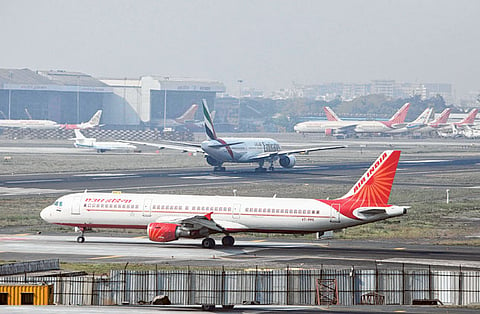Gulf airlines show lukewarm response to India’s FDI policy
Etihad Airways cautious while Emirates says it is not looking at acquiring a stake

Dubai: Five days after India opened up its aviation sector for 49 per cent FDI (foreign direct investment), Emirates says it is not looking at acquiring a stake in any of the Indian carriers, while Etihad Airways says it will make such investments only if it’s convinced of strong commercial prospects.
A lot of it has to do with the fact that the Indian aviation sector on the whole has been ailing for a while with the country’s flagship carrier, Air India, waiting to be thrown a lifeline, and carriers such as Kingfisher Airlines barely managing to survive.
“Emirates has no plans to acquire a stake in another airline in India or anywhere else. We are busy focusing on the many aspects of our own growth including the launch of flights to five new destinations in as many months,” an Emirates spokesperson told Gulf News in an e-mailed statement, adding that the carrier operates 158 weekly flights to India at present.
However, Emirates President, Tim Clark, had said in June that for Emirates it would make sense to invest in an Indian carrier if only Emirates would get a complete management control along with the 49 per cent stake. “I should think all of them [the Indian carriers] will be very happy if Gulf money came in to the tune of 49 per cent. But Emirates is not keen on it — not at the moment. If I was to say, I will come in but these are the rules of the game — 49 per cent and we have complete management control, we decide where, what and when. Have you seen that working in India? You have to have the management control to make it work,” he told Gulf News.
Corroborating Clark’s comments is aviation analyst, Andrew Charlton of Aviation Advocacy. “The fact is that none of the Indian airlines are investment ready at this stage. Secondly, as huge as the Indian market is, the rights that the Gulf carriers have may allow them to access most of the big markets directly, making the need for an investment more remote,” he points out.
Etihad Airways, meanwhile, said while it welcomes the Indian government’s decision to allow foreign investment in Indian carriers, such investments will be made where Etihad Airways believes the “commercial prospects are strong, where there are like-minded business philosophies, and where such commitment will be welcomed”.
“If or when we do make further investments of this sort, we will announce them in line with regulatory and commercial requirements,” an Etihad spokesperson told Gulf News in an emailed statement, adding that the Indian aviation industry “offers tremendous potential, with significant passenger movement on domestic and international sectors”.
The airline is due to launch its ninth Indian destination, Ahmedabad, in November 2012, thereby increasing the number of flights between India and Abu Dhabi from 52 to 59 flights per week.
Qatar Airways did not respond to Gulf News queries.
“By coming up to 49 per cent [investment], at least the Indian government is helping its airlines. It puts them ahead of the US investment rules too. The question might be more whether the airlines are ready to accept that help?,” argues Charlton.
Sign up for the Daily Briefing
Get the latest news and updates straight to your inbox



